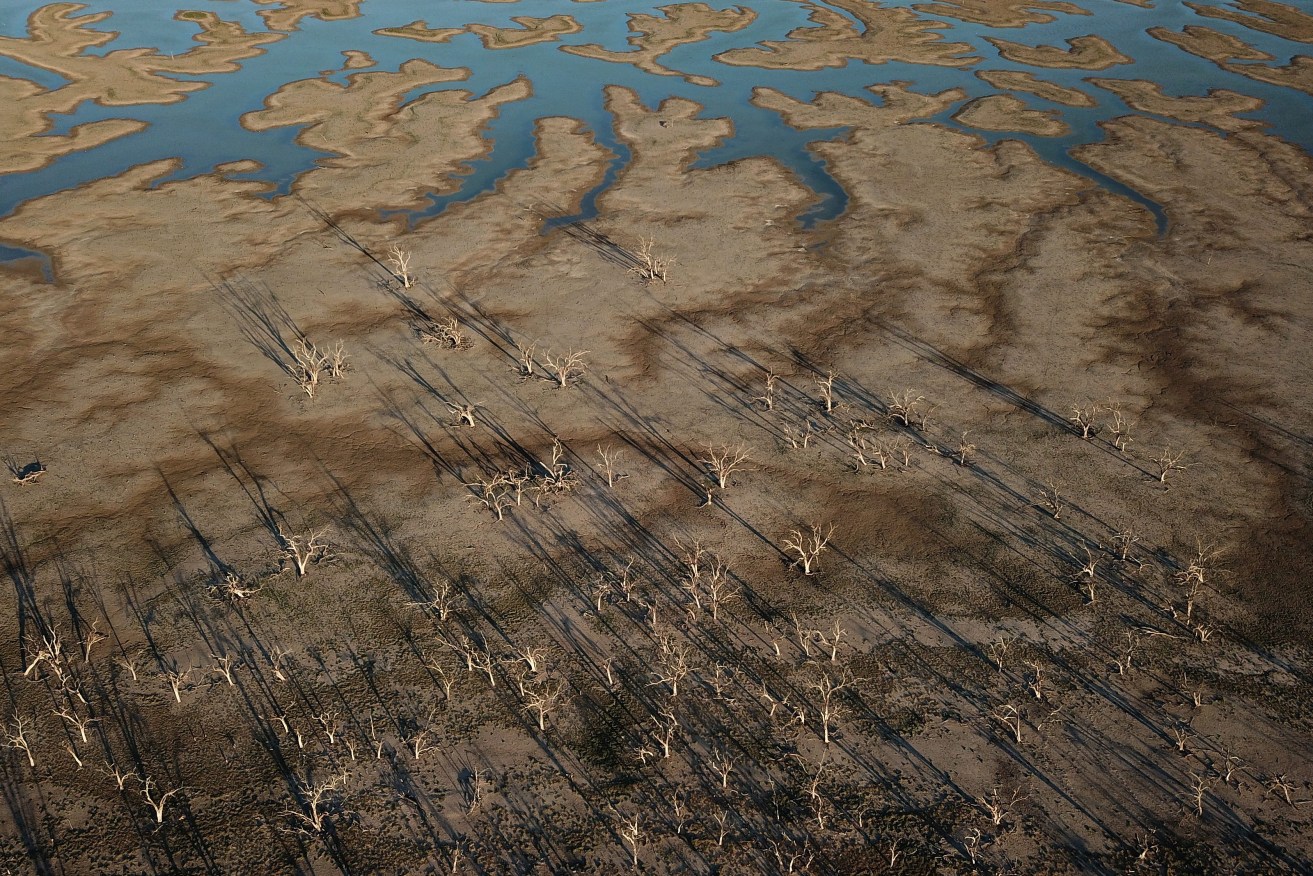Damning review of Murray-Darling Basin plan delivery
The Murray-Darling Basin plan has not made enough progress on water recovery and proposed legislation to extend its timeframe doesn’t go far enough.

The report found some key projects were not viable including the Menindee Lakes project, with some supply projects no longer representing value for money and "no real consequences" for those basin states not delivering on supply projects. (AAP Image/Dean Lewins)
That’s the damning assessment from the Productivity Commission, which has called for more state and federal government accountability in its first interim review of the plan in five years.
“Very little progress has been made on water recovery, or on supply and constraints-easing measures,” associate commissioner Chris Guest said.
“The plan is central to securing a healthy working basin. Basin governments need to be more transparent and accountable for delivering the plan.”
The Murray-Darling plan outlines the amount of water that can be taken from the basin each year, while allowing for an environmentally sustainable amount to remain.
The original proposal aimed to return 450 gigalitres of additional water to the environment by next June but new laws would push back the deadline to December 2027.
Environment Minister Tanya Plibersek in August unveiled a new plan with all basin states except for Victoria after it was revealed the old agreement was not on track to meet its water recovery targets.
Responding to the report, the minister said it confirmed what was already known.
“After a decade of sabotage under the Liberals and Nationals, the Murray-Darling Basin plan is off track,” Plibersek said.
“More than 80 per cent of the water recovered under the plan so far has been under federal Labor governments.”
The minister said laws before the Senate would rescue the plan by allowing “more time, more options, more funding and more accountability”.
But opposition water spokeswoman Perin Davey said the government has had its priorities wrong in the dogged pursuit of an extra 450 gigalitres.
“Chasing the 450Gl before understanding what water recovery is required under the baseline targets is putting the cart before the horse,” Davey said.
“There is a reason why the basin plan was written as is – water recovery and offsets, constraints, and then additional water through the 450Gl – as long as it does not cause social and economic harm.”
On Tuesday, a Senate committee began examining the legislation to amend the basin plan and will report back by November 8.
The commission’s 254-page report looked at how the actions of governments are tracking against the timeframes set out in the plan.
It found progress had stalled because of weak governance in a changing water market and the costs of achieving enhanced environmental outcomes through water recovery had risen substantially.
The interim report said “resetting the balance” of the basin had slowed since 2018 and would not be completed by the original deadline of July 2024.
The commissioners have called on the federal government to begin a renewed program of water recovery including staged voluntary water entitlement purchases.
They also want consideration given to a new government-owned corporate entity to undertake water recovery and implement some supply projects.
It found some key projects were not viable including the Menindee Lakes project, with some supply projects no longer representing value for money and “no real consequences” for those basin states not delivering on supply projects.
The federal water minister should report annually to parliament on the progress, feasibility and cost of projects and decide on their future, commissioner Joanne Chong said.
While the proposed legislation will provide more time and allow new supply measures and voluntary water purchases, a significant water recovery shortfall is still likely, the commission found.
The legislation did not address all the factors that have contributed to the lack of progress across the range of projects.
“Escalating costs, across both water recovery and the supply projects, also means resetting the balance will cost taxpayers considerably more than originally expected,” the report said.
It concluded the Australian government needed to be more accountable “on the supply, constraints easing and toolkits projects during the next phase of implementation”.
The commission also recommends strengthening the roles of Aboriginal and Torres Strait Islander people in the basin plan and noted minimal progress on the Aboriginal Water Entitlements Program.
Previous warnings about the plan had not led to change, they noted.












